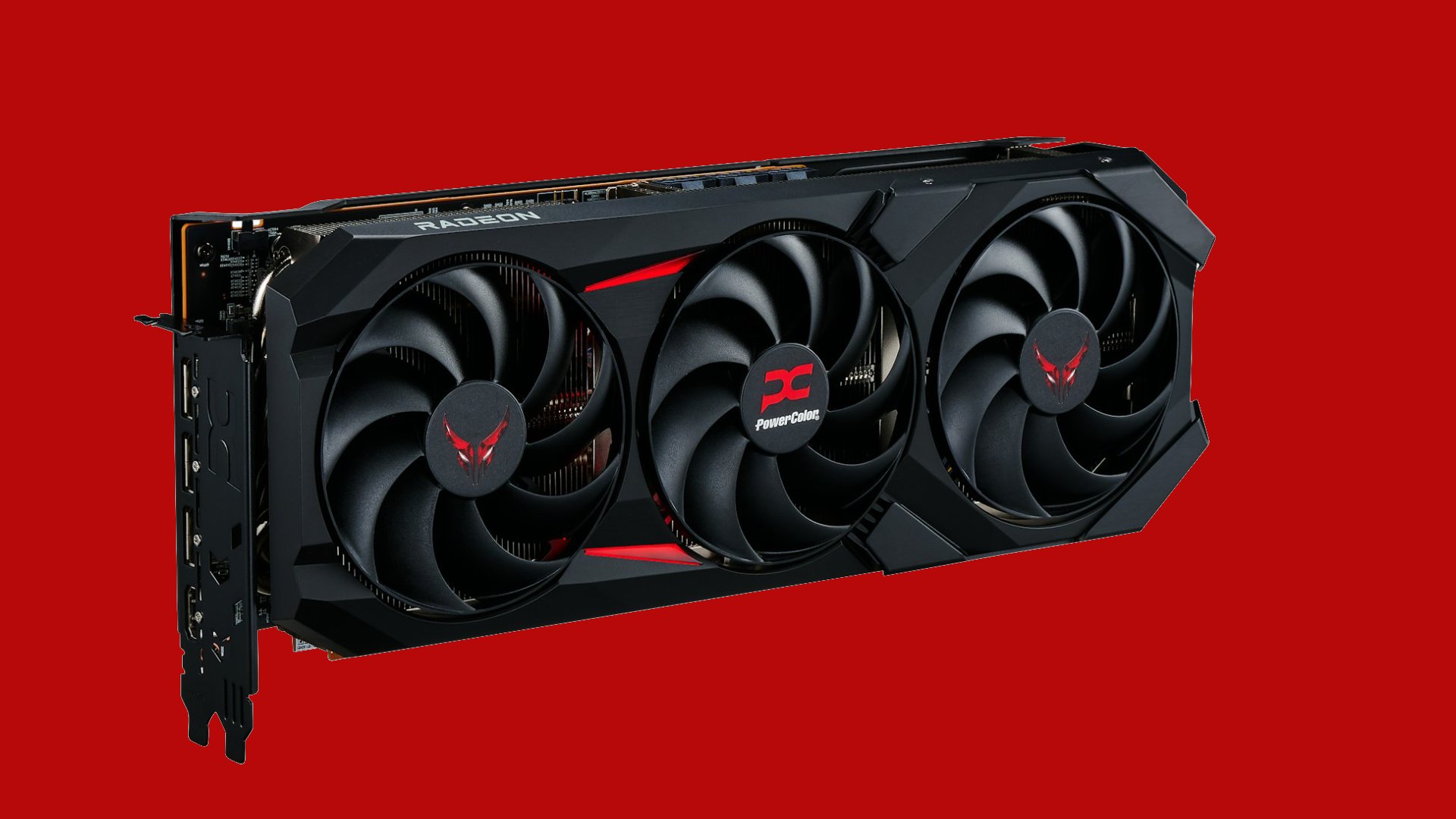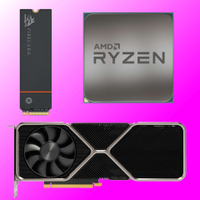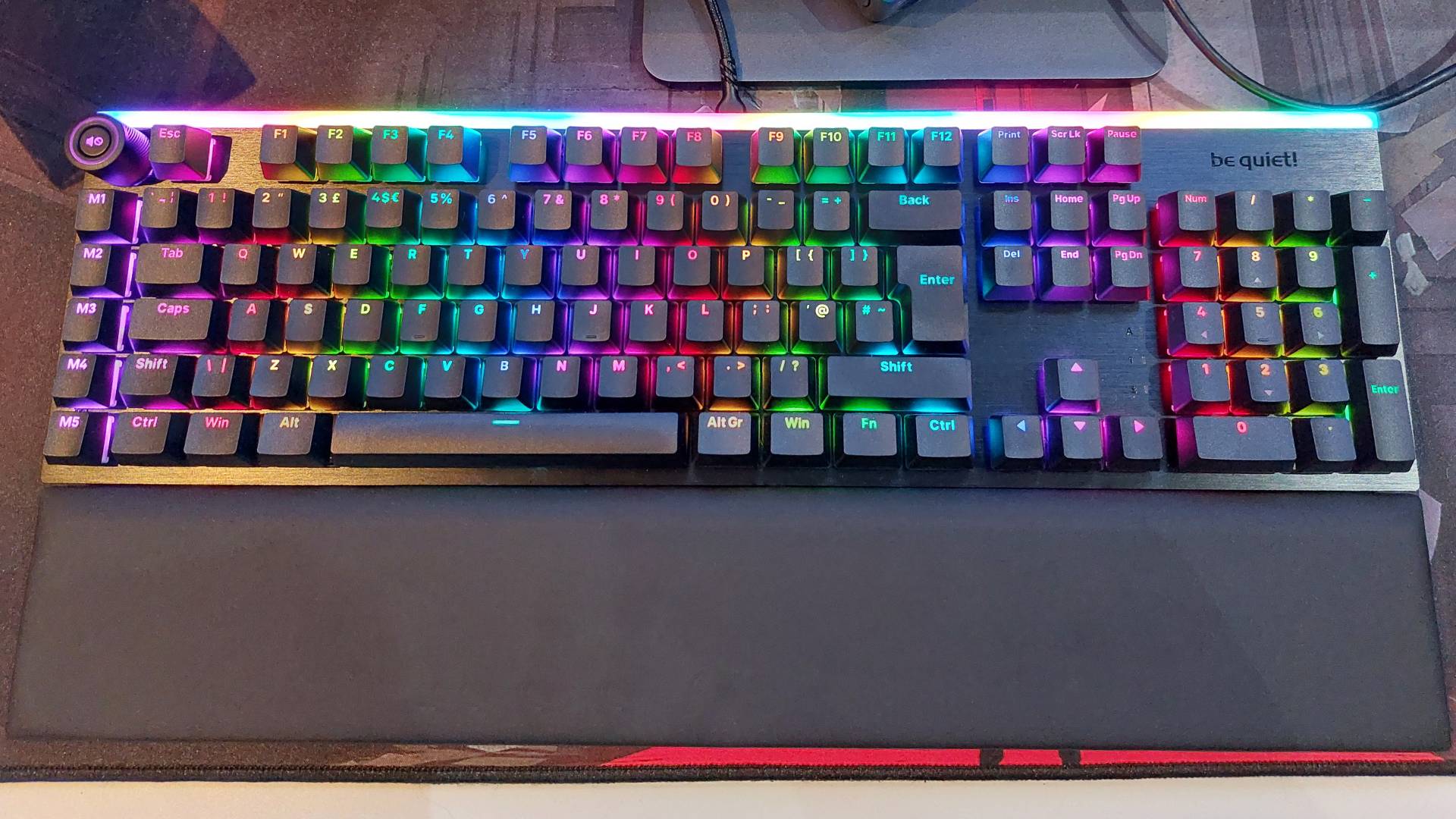AMD and Samsung demo 8K 120 Hz gaming and I am really, really struggling to care
So many pixels. So little point.
AMD and Samsung have shown off what might well be a world's first but is definitely of arguable real-world utility. Give it up for 8K 120 Hz gaming over HDMI.
The eponymous 8K Association arranged the demo at the NAB show for AV hardware in Las Vegas. The core hardware involves an AMD Radeon RX 9070 XT and Ryzen 9800X3D CPU in a PC supplied by MainGear, paired with a Samsung Neo QLED 8K TV.
According to the 8K Association, the TV is a special modified version of Samsung's Neo QLED line flown in the for the event from Korea and the game being demoed was Horizon Forbidden West.
It was all rendered at 5K and then upscaled to 8K using AMD's FSR 3 technology. It's unclear why FSR 4 wasn't used, given it is included in AMD's list of officially supported supported titles. However, the 8K Association described FSR 3 as "ML-based", which only applies to FSR 4, so there's potentially something lost in translation and it was indeed FSR 4 being used.
Anywho, the huge bandwidth required for 8K at 120 Hz was enabled by an HDMI 2.1b interface, which was running DSC or Display Stream Compression. Just to put all this into context, 8K at 120 Hz requires the same bandwidth as 4K at 480 Hz, something PC Gamer alumnus Alan Dexter would only be too happy to explain in detail.

Of course, in native rendering terms, the same 4x scaler applies when it comes to GPU load. 8K is four times the work for a graphics card as 4K. And 4K is debilitating enough when running modern games.
The caveat here is that upscaling technologies like AMD's FSR and Nvidia's DLSS mean that you could hit 8K at 4K frame rates. But then the question arises of how 4K upscaled to 8K compares to 4K native.
The biggest gaming news, reviews and hardware deals
Keep up to date with the most important stories and the best deals, as picked by the PC Gamer team.
It's certainly true that returns diminish as resolutions increase. The leap in terms of perceived visual quality from 540p to 1080p is greater than 1080p to 4K. And the jump from 4K to 8K is less apparent still, subjectively.
Then factor in some image quality loss, 8K upscaled versus 8K native, and it's debatable just how much value you're getting from 8K. Indeed, you could argue that most gamers, most of the time, would struggle to tell the difference between 4K native and 8K native, let alone 4K native versus 8K upscaled.
Up to a point, that will depend on screen size. On a really massive 100-inch-plus display, 8K's advantage is likely more obvious. But then 8K gaming on a 100-inch panel really is getting into rarified territory. That's especially true when you consider that, to the best of our knowledge, the largest currently available 8K TV is in fact 98 inches and costs $40,000.
Then there's the minor matter of limited video context in 8K. Sure, you might get the odd game running at 8K. But there's very little TV or movie content encoded in true 8K.
All told, we can't see 8K being much of a thing for many years to come. More likely, the next step up for high-end gaming is 5K2K, which is basically 4K extended into a wider 21:9 aspect ratio, such as the new LG UltraGear 45GX950A, a 45-inch OLED model that we can't wait to get our hands on.
Best CPU for gaming: Top chips from Intel and AMD.
Best gaming motherboard: The right boards.
Best graphics card: Your perfect pixel-pusher awaits.
Best SSD for gaming: Get into the game first.

Jeremy has been writing about technology and PCs since the 90nm Netburst era (Google it!) and enjoys nothing more than a serious dissertation on the finer points of monitor input lag and overshoot followed by a forensic examination of advanced lithography. Or maybe he just likes machines that go “ping!” He also has a thing for tennis and cars.
You must confirm your public display name before commenting
Please logout and then login again, you will then be prompted to enter your display name.


